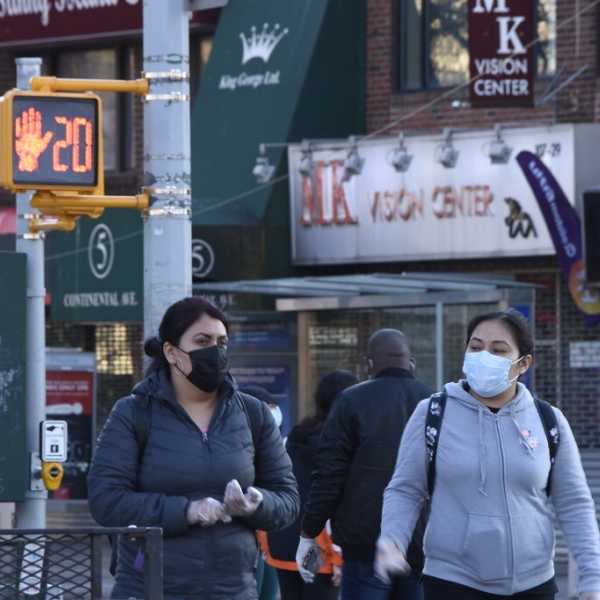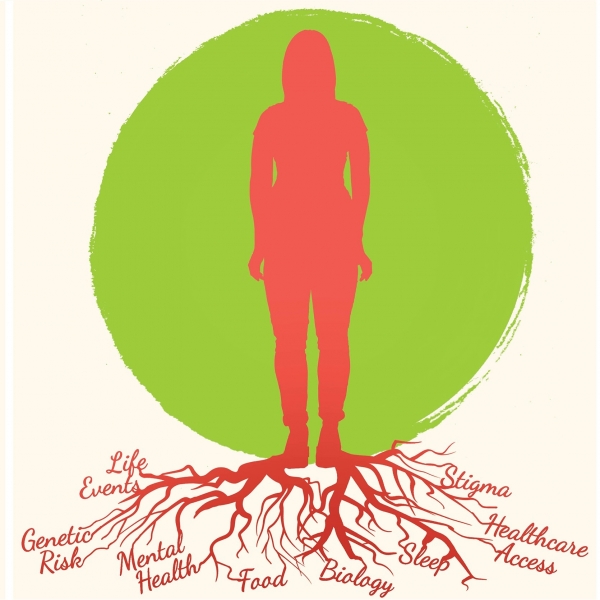The time to act is now: Accelerating action on obesity during COVID-19
While the COVID-19 pandemic continues to cause death and disruption in all corners of the world, the pandemic of obesity can no longer be ignored.
The time to act on obesity is now: to protect those most at risk from COVID-19 and to deliver health for all.
The obesity pandemic
On current trends, 1 in 5 adults worldwide are expected to be affected by obesity by 2025. The costs of obesity and obesity-related disease are increasing too. The total cost of high BMI to health services globally is estimated to be US$ 990 billion per year, over 13% of all healthcare expenditure.
By 2030, levels of childhood obesity are expected to reach 254 million – 100 million more than today. As the numbers of people living with obesity rises, so too does the risk of non-communicable diseases (NCDs) including diabetes, cardiovascular disease, liver disease and certain cancers.


Target 7 of the World Health Organization’s (WHO) WHO Global Action Plan for the Prevention and Control of Noncommunicable diseases 2013-2030 , adopted in 2013 by the World Health Assembly, calls to “halt the rise in diabetes and obesity [based on 2010 levels].” However, most countries have less than 10% chance of meeting this target and the majority of governments are moving further away from this goal.
Often perceived as a high-income country disease, obesity is fast becoming a disease of poverty, affecting the most vulnerable communities, and has now been identified as the most common form of malnutrition responsible for millions of preventable deaths.
We are living in a new nutrition reality, where rates of overweight and obesity are rapidly increasing and coexisting alongside stunting and wasting, and poor diets have been identified as the main risk factor for the global burden of disease.

The collision of two pandemics
The COVID-19 pandemic has had an enormous impact on the lives of people around the world and is disrupting health and food systems. The WHO has highlighted that NCDs are a risk factor for becoming seriously ill with COVID-19 and recently specifically emphasised that people living with obesity have seven times greater odds of developing severe forms of COVID-19.
Furthermore, a recently published systematic review suggests that individuals with obesity are 46% more likely to test positive for COVID-19, and a 48% increase in mortality rate was reported. World Obesity’s new dossier outlines the risk associated with overweight and obesity.

The COVID-19 pandemic has also brought unprecedented attention to some of the challenges and consequences associated with obesity, while providing a window of opportunity for governments to step up action on obesity and other NCDs. The UK has developed a new strategy to respond to the collision between the two pandemics, highlighting that the time for action on obesity is more urgent than ever. With policies including advertising regulation, the new strategy is an important recognition of the key role that creating healthy environments plays in tackling obesity.
Yet there are challenges too. There are instances of obesity prevention policies being disrupted, with several major processed food exporting countries citing the impact of COVID-19 on business at the World Trade Organization as a reason not to implement labelling regulations in Mexico. In Canada, the implementation of the proposed front of package labelling policy is being delayed due to COVID-19.
Political leadership to ‘Build back better'
Actions to address the rising obesity challenge require systematic, multi-sectoral policy actions, as well as recognition that government’s need to address the underlying ROOTS of obesity – a framework for action developed by members of the World Obesity Federation. We call on governments around the world to #ActOnNCDs:
- To increase government investment in the prevention, management, and treatment of obesity.
- To ensure that nutrition responses integrates and addresses malnutrition in all its forms; including undernutrition, overweight, obesity, stunting, wasting and other nutrition-related NCDs.
- To address the root causes of malnutrition and incorporate health in all policy approaches.
- To focus on implementing double-duty actions to address malnutrition in all its forms.
- To urgently implement comprehensive policies and actions to improve food environments, for instance through marketing restrictions and taxes. These should be legally-binding and mandatory and accompanied by accountability mechanisms.
- To ensure policies, partnerships, and dialogues relating to nutrition are conducted with principles of engagement to protect from inappropriate and vested interests undermining health.


Instituting accountability mechanisms, monitoring, and evaluation is not only the responsibility of the State – all actors including the private sector have a role to play in creating a transparent, accountable and equitable food system.
‘Building back better’ from the COVID-19 crisis will require transformative policy approaches to tackle the interrelated pandemics of obesity, COVID-19, but also the underlying social, economic, and racial inequities that must be addressed to ensure #HealthForAll and a #HealthyRecovery.
Authors
- Margot Neveux, Policy Manager, World Obesity Federation
- Kate Oldridge Turner, Head of Policy & Public Affairs, WCRF International
- Lucy Westerman, Policy & Campaigns Manager, NCD Alliance